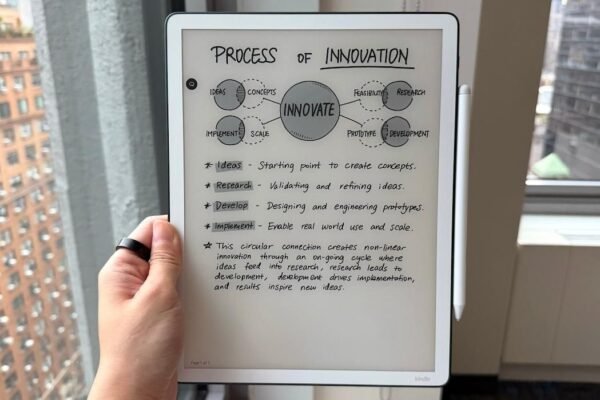
Kenya’s Agricultural And Tourism Sectors Shine In Employment Growth, Leaving Other Industries Behind Amid Economic Pressures

Kenya’s tourism Tourism Sectors Shine and agriculture sectors are poised for significant workforce expansion in 2025, demonstrating strong growth amidst a challenging economic landscape. The Central Bank of Kenya’s latest survey shows agricultural firms leading the charge with 20% planning to hire more employees, while the hospitality sector follows suit with 11% of hotels set to increase their workforce. This optimistic outlook contrasts with the struggles faced by other industries, such as transport, which has seen a sharp decline in hiring intentions. The positive trend in these key sectors, driven by increased tourism and agricultural exports, highlights the country’s potential for economic recovery and job creation, even as other industries grapple with high taxes and delayed payments.
Data from the Central Bank of Kenya (CBK) reveals that two key sectors, agriculture and hospitality, are showing the most confidence in expanding their workforce in 2025, compared to the previous year. This positive outlook comes amidst a complex economic landscape, with some sectors thriving while others face significant challenges.
Advertisement
The CBK’s July Market Perceptions Survey highlights that 20% of agricultural firms are planning to increase their workforce in 2025, a notable rise from 16% in May. This signals optimism within the sector, reflecting growing confidence in Kenya’s agricultural industry. Agriculture has traditionally been a cornerstone of Kenya’s economy, and the sector’s ability to bounce back and expand is crucial to the overall economic recovery.
The hospitality sector is also displaying optimism, with 11% of hotels planning to hire additional staff in 2025. While this is a slight decline from 17% in May, it still represents an encouraging shift compared to 2024. The survey, which polled 138 private companies outside the banking sector, provides valuable insights into employment trends across industries and suggests that both agriculture and hospitality are poised for growth in the coming year.
The survey also sheds light on the factors contributing to this growth. One of the major drivers for optimism in the hospitality sector is the recovery of tourism. Following the government’s decision to remove visa requirements for international visitors, Kenya has seen a significant increase in international arrivals. Between January and May 2025, the country welcomed 922,961 international visitors, which is a 2.3% rise from the same period in 2024. This influx of visitors has not only boosted the tourism industry but also directly benefited hotels, as the sector experiences higher demand for accommodations and services.
The removal of visa requirements has proven to be a game-changer for Kenya’s tourism industry, making it easier for international travelers to visit the country. This has, in turn, contributed to the positive hiring outlook within the hospitality sector, as hotels expand their operations to cater to the growing number of visitors. As Kenya continues to recover from the pandemic and global travel restrictions, the hospitality industry is expected to play a vital role in supporting the country’s economic recovery and job creation efforts.
Advertisement
Agriculture, on the other hand, has also been benefiting from a series of positive developments. Kenya’s agricultural exports have seen impressive growth in recent months, providing a boost to the sector. According to the Kenya Revenue Authority (KRA), coffee exports surged by 63% to 32,290 tonnes between January and May 2025, while the export of flowers, fruits, and vegetables jumped from 99,325 tonnes to 138,193 tonnes during the same period. This rise in exports indicates that agricultural firms are increasing production to meet both domestic and international demand.
The growth in agricultural exports has had a ripple effect, allowing firms to increase production, expand their operations, and hire more staff. Agricultural workers are vital to Kenya’s rural economy, and the increase in demand for Kenyan products on the global stage is an encouraging sign for the industry. The ability of agricultural firms to scale their operations and hire additional employees reflects the resilience and potential of Kenya’s agricultural sector, despite global economic challenges.
However, not all sectors are experiencing the same level of optimism. While agriculture and hospitality remain relatively strong, other industries are struggling with ongoing challenges. High taxes, delayed payments, and other economic pressures continue to affect businesses across different sectors. The transport sector, in particular, is facing significant setbacks. According to the survey, no transport companies are planning to hire additional workers in 2025, marking a stark contrast to previous trends where 75% of transport firms had planned to expand their workforce.
The decline in hiring intentions within the transport sector is concerning, especially considering the critical role that transportation plays in Kenya’s economy. The sector is a major contributor to the movement of goods and people across the country, and any slowdown in hiring could potentially limit the industry’s ability to meet growing demand. This shift is indicative of the broader challenges faced by industries that rely on infrastructure and logistics, as delayed payments and high operational costs continue to weigh on their growth prospects.
Despite the challenges in some sectors, the overall outlook for employment growth in Kenya remains positive. The agricultural and hospitality sectors are expected to continue their upward trajectory, benefiting from increased exports and a recovering tourism industry. As the country continues to navigate its post-pandemic recovery, the expansion of these key sectors will be crucial in supporting job creation and driving economic growth.
Kenya’s tourism and agriculture sectors are leading the way in workforce expansion for 2025, showing strong growth despite challenges faced by other industries like transport. These sectors’ optimism reflects the country’s economic recovery, driven by rising international arrivals and increased agricultural exports.
The data from the CBK’s July Market Perceptions Survey highlights the growing confidence within Kenya’s agricultural and hospitality sectors, with both industries showing a strong desire to expand their workforces in 2025. While challenges persist in other sectors, the overall trend is one of optimism, with agriculture and tourism leading the charge in terms of growth and job creation. If these sectors continue to thrive, they will play a significant role in Kenya’s broader economic recovery and development efforts in the coming years.
Tourism Sectors Shine Tourism Sectors Shine Tourism Sectors Shine Tourism Sectors Shine Tourism Sectors Shine Tourism Sectors Shine Tourism Sectors Shine Tourism Sectors Shine Tourism Sectors Shine Tourism Sectors Shine











